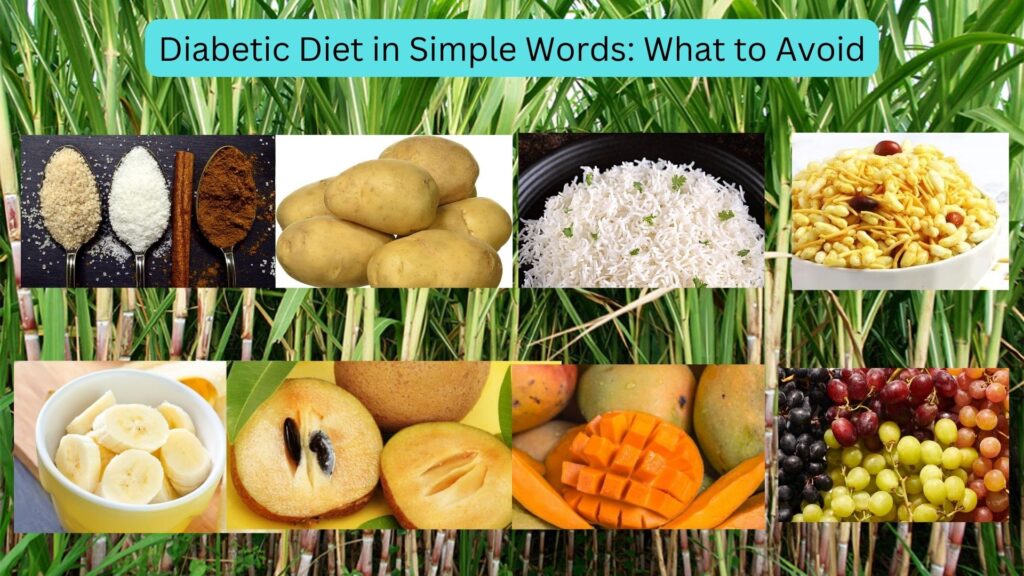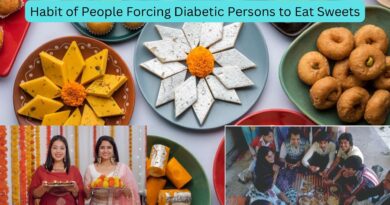Diabetic Diet in Simple Words: What to Avoid
Discover the essentials of a diabetic diet in simple words. Learn what to eat and what to avoid, including fruits to skip. Get expert advice to manage your diabetes effectively.
Are you struggling to understand what you should and shouldn’t eat as a diabetic? Don’t worry; we’ve got you covered. In this comprehensive guide, we’ll break down the diabetic diet in simple terms, focusing on what you should avoid and what you can enjoy. By the end, you’ll be better equipped to manage your diabetes while still enjoying delicious meals.
Introduction
Living with diabetes can be challenging, but it doesn’t mean you have to give up on tasty food. A diabetic diet in simple words means making healthier food choices. It’s all about managing your carbohydrate intake, monitoring your sugar levels, and paying attention to what you eat. So, let’s dive into the details.
What to Avoid
Say No to Sugar
Sugar is your number one enemy when you have diabetes. It causes rapid spikes in your blood sugar levels, making it difficult to manage the condition. So, it’s best to cut back on sugary snacks, desserts, and soft drinks. Opt for sugar substitutes if you have a sweet tooth but remember to use them in moderation.
Gur (Jaggery)
Gur, also known as jaggery, might seem like a healthier alternative to sugar, but it’s not diabetic-friendly. It can also cause sudden spikes in blood sugar levels, so it’s best to avoid it.
Minimal Rice
While rice is a staple in many diets, it can be problematic for diabetics. Opt for brown rice or eat white rice in moderation. It’s essential to monitor how it affects your blood sugar levels and adjust your intake accordingly.
Cut Back on Potatoes
Potatoes are starchy and can lead to blood sugar spikes. If you can’t imagine a meal without potatoes, try smaller portions, and choose healthier cooking methods like baking or boiling.
Avoid Maida (Refined Flour)
Maida, commonly used to make items like naan, bread, pav, pizza, and pasta, is highly refined and can cause rapid blood sugar spikes. Consider whole wheat alternatives or eat these items occasionally.

Fruits to Be Avoided
Banana
Bananas are delicious, but they’re high in carbohydrates and can lead to an increase in blood sugar levels. Enjoy them in moderation.
Chiku
Chikus, while tasty, are also high in sugar and carbohydrates. Keep them as an occasional treat rather than a regular snack.
Grapes
Grapes may be small, but they pack a punch in terms of sugar content. Limit your consumption to manage your blood sugar effectively.
Mango
Mangoes are a sweet delight, but they are not the best choice for diabetics. Opt for fruits with lower sugar content.
Sitafal (Custard Apple)
Custard apples, or sitafal, can cause rapid spikes in blood sugar. If you’re a fan, consume them in moderation.
What About Beet and Carrot Juice?
It’s a common question among diabetics. While beet and carrot juice have numerous health benefits, they are high in natural sugars. It’s best to consult with your healthcare provider before including these juices in your diet.
Coconut Water – A Tricky Choice
Coconut water is often seen as a healthy drink, but it contains natural sugars. It’s better to monitor your body’s response to coconut water and consume it in moderation.
Expert Insights
Living with diabetes means making informed choices every day. Here are some expert insights to help you navigate your diabetic diet:
- Portion Control: Controlling portion sizes is essential. Even healthy foods can affect your blood sugar if you eat too much.
- Balanced Diet: Focus on a well-balanced diet that includes lean proteins, whole grains, fruits, and vegetables.
- Regular Monitoring: Keep a close eye on your blood sugar levels. Regular monitoring will help you understand how your body responds to different foods.
- Consult a Dietitian: A registered dietitian can create a personalized meal plan tailored to your specific needs.
- Stay Hydrated: Drink plenty of water, and choose beverages like unsweetened tea or sparkling water.
- Physical Activity: Incorporate regular exercise into your routine to help control your blood sugar.
FAQs
Q: Can I ever have sweets again if I have diabetes?
Yes, you can, but in moderation. It’s best to opt for sugar-free or diabetic-friendly alternatives.
Q: Is it essential to completely avoid all the fruits mentioned?
No, but it’s crucial to monitor your blood sugar levels after eating them and make informed choices.
Q: Can I cheat on my diabetic diet occasionally?
Occasional indulgence is acceptable, but make sure you balance it with healthier choices the rest of the time.
Q: How often should I check my blood sugar levels?
Consult your healthcare provider, but it’s typically recommended to monitor your blood sugar as often as they advise.
Q: What can I drink besides water?
You can enjoy unsweetened tea, herbal tea, or sparkling water. Remember to avoid sugary beverages.
Q: Is there a one-size-fits-all diabetic diet?
No, the best diet for you depends on your individual health, preferences, and how your body responds to different foods.
Conclusion
Managing your diabetic diet in simple words means making mindful choices. By avoiding excessive sugar, starchy foods, and certain fruits, you can enjoy a healthier lifestyle while effectively managing your diabetes. Remember, it’s crucial to consult with healthcare professionals and stay informed about your condition. With the right approach, you can lead a happy and healthy life as a diabetic.




